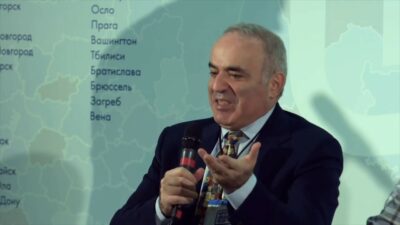Russian President Vladimir Putin has approved a new strategy for state national policy through 2036. The strategy contains six sections and 61 provisions. The document was published along with the corresponding presidential decree.
As nationalistically inclined commentators have noted, the document places significant emphasis on strengthening the role of the “state-forming” Russian people. In particular, it mandates that the number of events dedicated to promoting Russian culture and traditions must account for no less than 50% of all such events. The concept also separately highlights the need to promote the Russian language and culture abroad, as well as to combat “Russophobia” — along with xenophobia and neo-Nazism.
As Novaya Gazeta Europe reports, the document also sets measurable targets. By 2036, 95% of Russian citizens should demonstrate “civic self-awareness.” Officials are required to show that the share of citizens who positively assess interethnic relations has reached 85%. No more than 15% should believe that “serious conflicts on national grounds” could arise. On the occupied territories of Ukraine, the concept states that residents must take part in “nationwide events,” with participation there expected to reach at least 2.5 million people.
Putin further instructed the government to shape among residents of foreign countries the perception of Russia as a “democratic, federal, rule-of-law state that guarantees equality of rights and freedoms for all people and citizens regardless of sex, race, nationality, language, origin, property or official status, place of residence, attitude toward religion, beliefs, or membership in public associations.”
The Constitution of Russia does indeed formally define the country in such terms. In practice, however—especially in recent years—numerous laws and regulations have been adopted that restrict the rights of entire categories of people, including on the basis of sexual orientation, political and religious views, designation as so-called “foreign agents,” or involvement with organizations declared undesirable or extremist by the authorities.




